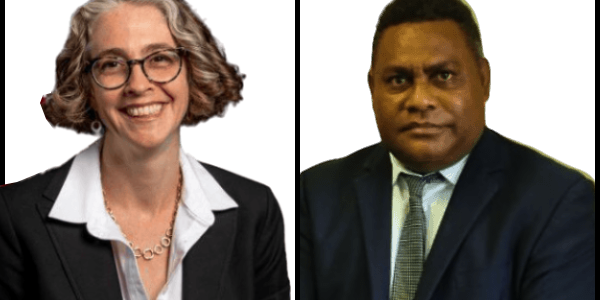A joint announcement by MCC and SIG to be made in Honiara today of a $160-million investment through the MCC Solomon Islands Threshold Programme
AN independent United States (US) government agency Millennium Challenge Cooperation (MCC) will today announce SBD$160 million investment work to yield economic growth in the natural resource management and tourism sectors.
The announcement will be jointly made by Vice President of the Department of Policy and Evaluation at MCC, Alicia Philips and the Minister for National Planning and Development Coordination (MNPDC), Rexon Ramofafia.
Ms Philips is currently in the country for a three-day visit to see the progress of the MCC Solomon Islands Threshold Programme signed between the Solomon Islands Government and MCC in January 2022.
The Forest Value Enhancement Project seeks to provide communities with economically viable alternatives to logging, which historically has been unsustainable.
It aims to generate more reliable and sustainable benefits from the country’s natural forest resources by reducing negative environmental impacts, increasing revenues from forestry production and promoting more equitable revenue disbursement to local communities and attaining a regulatory and enforcement framework that more evenly balances utilising forests for both logging and non-logging purposes.
The project includes the expansion of an economically-viable Payment for Ecosystem Services (PES) programme to generate environmental, economic and social benefits through PES accreditation and eventual carbon credit payments in participating communities.
It also seeks to promote regulatory and enforcement reforms in the forest industry by strengthening problem solving capacity using a facilitated governance system in participating jurisdictions and to the extent possible within the national regulatory framework.
The Accessing Land for Tourism Investment Facilitation Project aims to address land access and investment facilitation issues that have prevented Solomon Islands from realising its potential in the tourism sector.
The land access activity will increase government capacity to identify registered land capable of attracting tourism investments and help potential investors succeed by obtaining “social license” with neighboring communities to ensure tenure security.
The project will also assist local communities to ensure inclusive land governance, promoting tenure security and benefit sharing from tourism investments.
The investment facilitation activity will collaborate with the government to develop a portfolio of land parcels with potential opportunities for responsible investors.
The project will also enhance the government’s capacity to respond to investor needs and identify potential projects that could yield the greatest benefit to Solomon Islanders by fostering local economic growth, including the expansion of employment and entrepreneurship opportunities for women.
Building governance reform capacity in the tourism and land sectors will deepen project sustainability and country ownership, enabling tourism to become a driver of growth in Solomon Islands.
MCC works with others to increase the scale, impact, and sustainability of our poverty-reducing programmes.
BY CHARLES KADAMANA









